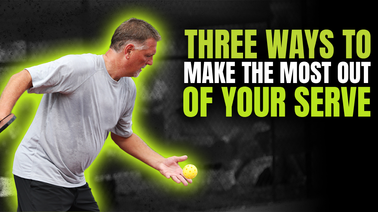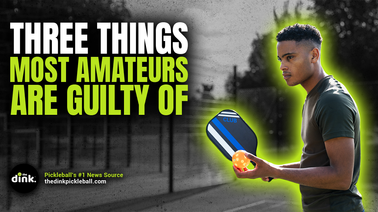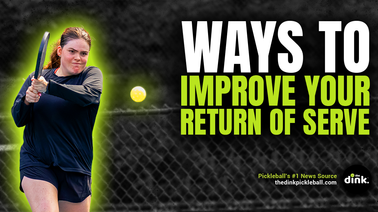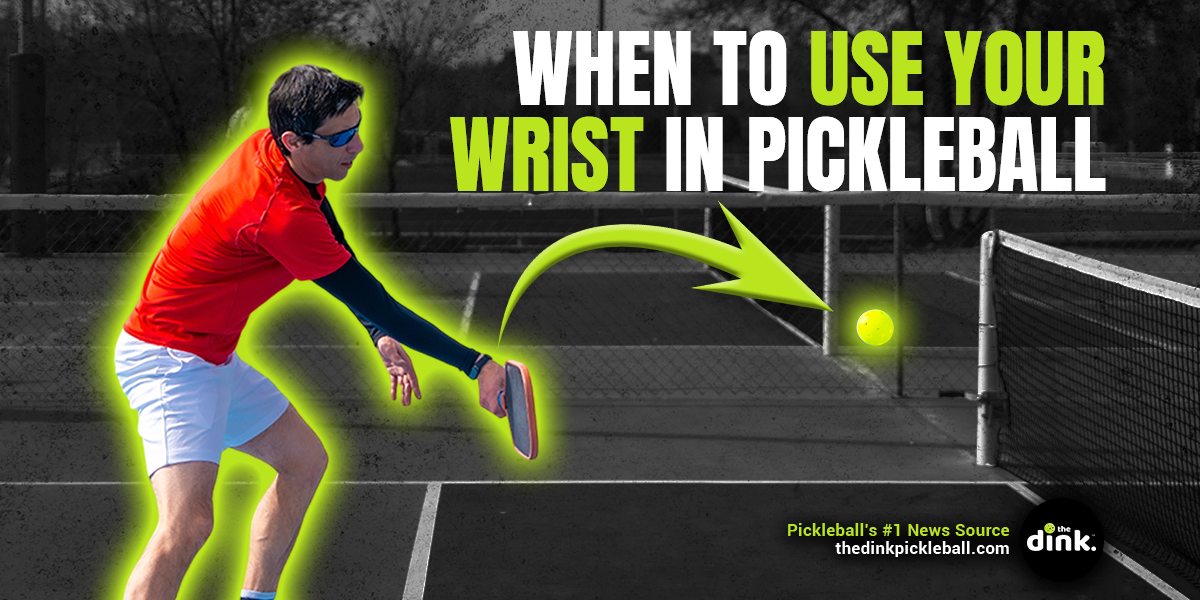
Using Too Much Wrist Action in Your Pickleball Mechanics Is Costing You Points
"If you’re watching this video, you should not be using your wrist." This is the beginning statement in a recent video by top pickleball pro (and PicklePod co-host) Zane Navratil.
The video, "How Pickleball PROS Use WRIST ACTION with ANDRE MICK," is a tutorial on when and if pro players use their wrists for particular shots in pickleball.
Before you watch the video, we want to explain why amateurs should (almost) never use their wrists and what problems using it can cause in your game.

Why using your wrist hurts your game
The biggest problem with incorporating wrist movement into shots is that it adds an extra variable. Since most amateurs already have faulty mechanics in their swings, that added variable can cause serious problems.
If you think of it in terms of machinery, consider that fewer moving parts (generally) lead to more efficiency.
When something is efficient, its outcomes are more consistent. If your shots are great one day and not so great another day, it could be due to flaws in your mechanics.
And one of those flaws is likely how much you use your wrist.
Why the pros can use their wrists
Pro athletes have trained for thousands (even tens of thousands) of hours to get where they are. Their fundamentals are sound, and their timing is impeccable. Because of this, if they add a variable, like using their wrist, they are able to get away with it.
They understand what that extra motion does to their shots and are more able (than you and I) to adjust as needed.
How to identify if you’re being too ‘wristy’
There are some tell-tale signs that you might be using your wrist too much in your shots.
- You keep popping the ball up – especially on dinks
- Your shots aren’t going where you think they should go
- Your overheads are going straight down into the net
- You consistently miss your serve or return of serve
- You’re hitting the ball out of bounds, left or right

Turning over or snapping your wrist could be causing each of these problems. Of course, there could be other variables causing them, too.
(Back to that part about variables and why adding another variable is rarely a good thing.)
How to limit wrist movement
If you watch the pros or high-level pickleball players closely, you’ll realize they don’t actually use their wrists that much in their shots. As Zane and Andre point out, they often rotate their forearms or snap their wrists after taking their shot (on the follow-through).
One way to limit your wrist movement is to practice while off the court.
First, pick up your paddle and turn over the face using your wrist. Feel the little muscles in your wrist tighten. Depending on your mobility, you might also notice that you can’t quite turn it completely over.
Now, turn the paddle face using your forearm. Can you feel a difference?
The bigger muscles, closer to your elbow, become activated, and you can rotate your paddle a bit more than when using just the wrist.
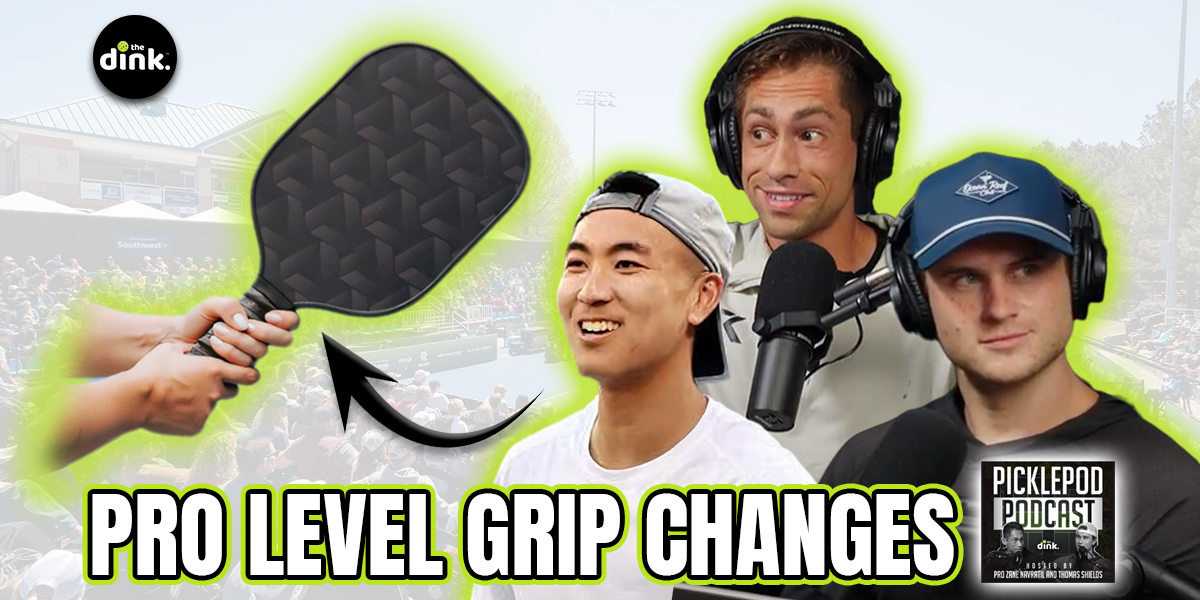
Take this exercise further by rotating the paddle with your shoulder (it should feel like you are tucking your elbow into your side). Notice how the working muscles change again, and you can gain even more rotation.
This is an example of how three areas of the body (the wrist, forearm, and shoulder) can be combined into one unit working together.
Take it to the court
Next time you’re on the court, focus on limiting your wrist movement in each of your swings. You can even practice this on the court by holding your wrist still with your offhand while you take your shot.
Whether it’s a dink, drop, or drive, limiting your wrist motion will help you find better consistency and make fewer mistakes.
Now, watch Zane Navratil and Andre Mick in this video to see how and when they use their wrists in pickleball.







